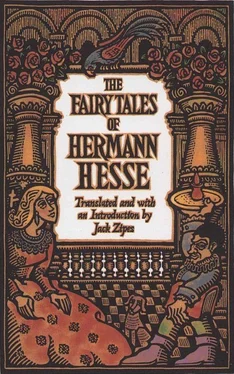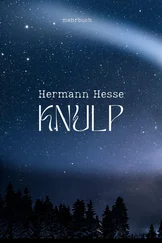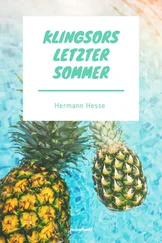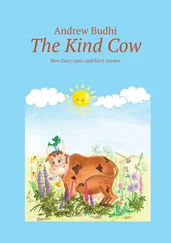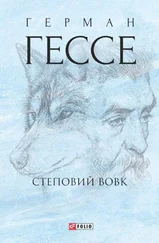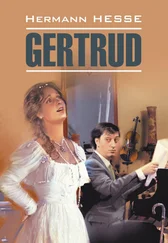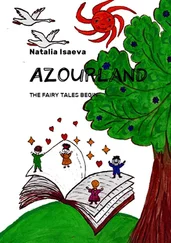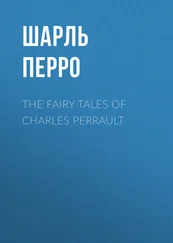Hermann Hesse - The Fairy Tales of Hermann Hesse
Здесь есть возможность читать онлайн «Hermann Hesse - The Fairy Tales of Hermann Hesse» весь текст электронной книги совершенно бесплатно (целиком полную версию без сокращений). В некоторых случаях можно слушать аудио, скачать через торрент в формате fb2 и присутствует краткое содержание. Год выпуска: 1995, ISBN: 1995, Издательство: Bantam Books, Жанр: Классическая проза, Сказка, на английском языке. Описание произведения, (предисловие) а так же отзывы посетителей доступны на портале библиотеки ЛибКат.
- Название:The Fairy Tales of Hermann Hesse
- Автор:
- Издательство:Bantam Books
- Жанр:
- Год:1995
- ISBN:9780553377767
- Рейтинг книги:5 / 5. Голосов: 1
-
Избранное:Добавить в избранное
- Отзывы:
-
Ваша оценка:
- 100
- 1
- 2
- 3
- 4
- 5
The Fairy Tales of Hermann Hesse: краткое содержание, описание и аннотация
Предлагаем к чтению аннотацию, описание, краткое содержание или предисловие (зависит от того, что написал сам автор книги «The Fairy Tales of Hermann Hesse»). Если вы не нашли необходимую информацию о книге — напишите в комментариях, мы постараемся отыскать её.
The Fairy Tales of Hermann Hesse — читать онлайн бесплатно полную книгу (весь текст) целиком
Ниже представлен текст книги, разбитый по страницам. Система сохранения места последней прочитанной страницы, позволяет с удобством читать онлайн бесплатно книгу «The Fairy Tales of Hermann Hesse», без необходимости каждый раз заново искать на чём Вы остановились. Поставьте закладку, и сможете в любой момент перейти на страницу, на которой закончили чтение.
Интервал:
Закладка:
Weeping, Anselm held the flower in his hands. And weeping, he took his leave. When his friend sent news of Iris’s death, he came again and helped adorn her coffin with flowers and lower it into the earth.
Then his life fell to pieces around him. It seemed impossible for him to continue spinning his thread. He gave everything up. He left his position at the university and the city and vanished. He was seen here and there. One time he appeared in his home city and leaned over the fence of the old garden, but when the people asked after him and wanted to look after him, he disappeared into thin air.
He continued to be fond of the blue flag. Whenever he saw these flowers growing, he bent over one, and when he stared into its chalice for a long time, it seemed as though the fragrance and presentiment of all the past and future fluttered toward him out of its blue depths. But he would sadly continue on his way because fulfillment did not come. It was as though he were listening at a half-opened door and heard the most lovely secret breathing behind it, and just when he thought that everything would now be given to him and fulfilled, the door slammed shut, and the wind of the world swept coolly over his loneliness.
His mother spoke to him in his dreams, and now for the first time in years, he felt her body and face very clearly and nearby. And Iris spoke to him, and when he awoke, something continued to ring in his ears, and he would try to recall it the entire day. He did not have a permanent home. He traveled as a stranger through the land, slept in houses and woods, ate bread or berries, drank wine or the dew from the leaves of the bushes.
He was oblivious to everything. Many people considered him a fool. Many thought he was a sorcerer. Many feared him. Many laughed at him. Many loved him. He learned to do things he had never been able to do before — to be with children and take part in their strange games, to talk to a broken twig and a little stone. Winters and summers flew by him. He looked into the chalices of flowers and into brooks and lakes.
“Pictures,” he sometimes said to himself. “They’re all just pictures.”
But he felt something essential inside him that was not a picture, and he followed it. And at times this essence within him would speak, and its voice was that of Iris and that of his mother, and it was consolation and hope. He encountered miracles, and they did not surprise him. And one winter he walked in the snow through a field, and ice had formed on his head. And in the snow he saw an iris stalk standing stiff and slender. It was bearing a beautiful solitary blossom, and he bent over it and smiled, for now he realized what the iris had always reminded him of — he recognized the childhood dream again and saw the light blue path that was brightly veined through the golden pickets leading into the secret heart of the flower, and he knew that everything he had been seeking was there, that this was the essence and no longer a picture.
And once again he was struck by memories. Dreams guided him, and he came upon a hut, where he found some children who gave him milk, and as he played with them, they told him stories. They told him that a miracle had occurred in the forest where the charcoal burners worked. These men had seen the gate of spirits standing open, the gate that opened only once every thousand years. He listened and nodded while envisioning the lovely picture and continued on his way. Ahead of him was a bird singing in the alder bush. It had a strange, sweet voice like the voice of the dead Iris. He followed the bird as it flew and hopped farther and farther over a brook and deep into the forest.
When the bird stopped singing and could no longer be heard or seen, Anselm stopped and looked around him. He was standing in a deep valley in the forest. Water ran softly under wide green leaves. Otherwise everything was quiet and full of expectation. But the bird kept singing inside him with the beloved voice and urged him on until he stood in front of a stone wall covered with moss. A small, narrow gap in the middle of the wall led into the interior of the mountain, and an old man was sitting in front of it. As soon as the man saw Anselm approaching, he stood up and yelled, “Go back! Go back! This is the gate of the spirits. No one has ever returned after entering it.”
Anselm looked up into the rocky entrance. He noticed a blue path that lost itself deep inside the mountain, and golden pillars that stood close together on both sides. The path sank downward as though into the chalice of an enormous flower.
The bird was singing brightly within his breast, and Anselm walked by the guard into the gap between the golden pillars, into the blue mystery of the interior. He was penetrating into Iris’s heart, and it was the blue flag in his mother’s garden into whose blue chalice he floated, and as he quickly approached the golden twilight, all memory and knowledge came to him at once. He felt his hand, and it was small and soft. Voices of love sounded nearby and familiar in his ears, and the glistening golden pillars sparkled as they had in the remote past, during the spring of his childhood.
And the dream that he had dreamed as a small boy was also there again, his dream about entering into the chalice, and behind him the entire world of pictures came and glided with him and sank into the mystery that lies behind all images.
Anselm began to sing softly, and his path sloped gently down into home.
Dedication
For Bette and Dave Dines,
two special people
Acknowledgments

As in other instances, Linda Gross has been the guiding spirit and force behind this book. Not only did she encourage me to develop the Hesse project, but she also did a superb job of advising me and editing the manuscript throughout its different phases. In addition I should like to express my gratitude to Janet Biehl, whose thorough copyediting improved the translation immensely, and to Carol Dines, my wife, who read through various drafts and added “magic” touches to the tales.
JACK ZIPES Minneapolis, 1995About the Translator

Jack Zipes is professor of German at the University of Minnesota in Minneapolis, and has previously held professorships at New York University, the University of Munich, the Free University of Berlin, the University of Frankfurt, the University of Wisconsin — Milwaukee, and the University of Florida. In addition to his scholarly work, he is an active storyteller in public schools and has worked with children’s theaters in France, Germany, Canada, and the United States. His major publications include The Great Refusal: Studies of the Romantic Hero in German and American Literature (1970), Political Plays for Children (1976), Breaking the Magic Spell: Radical Theories of Folk and Fairy Tales (1979), Fairy Tales and the Art of Subversion (1983), The Trials and Tribulations of Little Red Riding Hood (1983, 2nd rev. edition 1993), Don’t Bet on the Prince: Contemporary Feminist Fairy Tales in North America and England (1986), The Brothers Grimm: From Enchanted Forests to the Modern World (1988), Spells of Enchantment: The Wondrous Tales of the Western World (1991), The Outspoken Princess and The Gentle Knight (1994), and Fairy Tale as Myth /Myth as Fairy Tale (1994). He co-edits The Lion and the Unicorn , a journal dealing with children’s literature, and has written numerous articles for various publications in the United States, Great Britain, Germany, Canada, and France. In addition to this translation of Hesse’s fairy tales, he has translated and edited The Complete Fairy Tales of the Brothers Grimm (1987) for Bantam.
Интервал:
Закладка:
Похожие книги на «The Fairy Tales of Hermann Hesse»
Представляем Вашему вниманию похожие книги на «The Fairy Tales of Hermann Hesse» списком для выбора. Мы отобрали схожую по названию и смыслу литературу в надежде предоставить читателям больше вариантов отыскать новые, интересные, ещё непрочитанные произведения.
Обсуждение, отзывы о книге «The Fairy Tales of Hermann Hesse» и просто собственные мнения читателей. Оставьте ваши комментарии, напишите, что Вы думаете о произведении, его смысле или главных героях. Укажите что конкретно понравилось, а что нет, и почему Вы так считаете.
